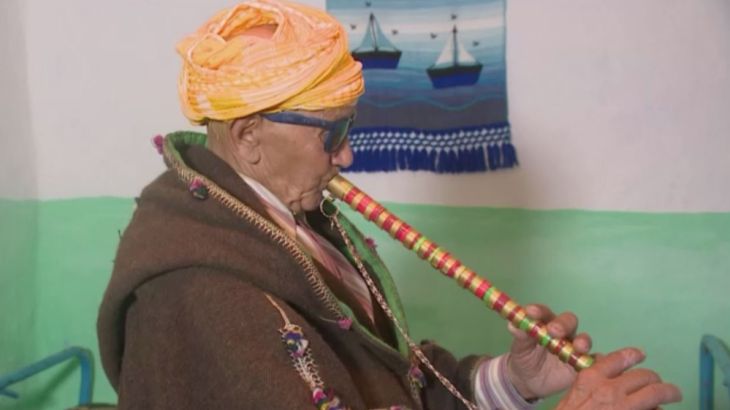
A New Lease of Life: Growing Old in the Arab World
Lebanese and Moroccans reflect on life after retirement, as they pursue their passions in art, music, and literature.
Filmmaker: Rania Rafei
In 2015, the World Health Organization published ‘Healthy Ageing‘, its assessment of and vision for the elderly, between now and the year 2030. It talks about retirement ideally being “the process of developing and maintaining the functional ability that enables wellbeing in older age”. It defines functional ability as “having the capabilities that enable all people to be and do what they have reason to value”.
Keep reading
list of 4 itemsInside the pressures facing Quebec’s billion-dollar maple syrup industry
‘Accepted in both [worlds]’: Indonesia’s Chinese Muslims prepare for Eid
Photos: Mexico, US, Canada mesmerised by rare total solar eclipse
The five men and women from Morocco and Lebanon in this film have met both of these challenges head on – and in quite different but inspiring ways.
When older people in the Arab world approach retirement, their greatest worries are often financial – but also to do with exactly what they’ll do with their time once they stop working. Their image of retirement is often as some kind of death sentence, a period of inertia, boredom, physical weakness and sometimes depression. But as people in many parts of the world are now living longer, is this stereotype starting to change?
For the five retirees in A New Lease Of Life, life after work is all about continuing to be mentally and physically able, of devoting their life to relationships, to the arts – and to their own health and well-being.
“Age isn’t how old you are. It’s about being incapable. It’s when the mind and body slow down,” says retired paediatrician Abdulwahab Al-Amin.
Age isn't how old you are. It's about being incapable. It's when the mind and body slow down.
Post-retirement culture in the Arab world is poorly developed, leaving many people confused about how to lead their later lives. Having an unstructured schedule can have an emotional effect – so finding a hobby can be essential to ‘healthy ageing’.
“A lot of people complain about retirement,” says Al-Amin. “They don’t have any hobbies or duties because their kids have grown up … you’d find them complaining about having nothing to do”. By contrast, Al-Amin now spends his time writing and publishing his memoirs, unpacking life events going back to his first love and to the Lebanese civil war.
All five characters are breaking the mould in different ways. Some have had high profile jobs but are now using their time to explore and rediscover some of the life-long passions they never had time for while working.
Firyal Lathqi is a retired school administrator who used to paint when she was young but didn’t pursue it. “I didn’t take it seriously” she says. Then her husband persuaded her to pick it up again. “I eventually decided to try. I had nothing to lose”. Spending three to four hours a day painting, she now produces around 45 paintings a year and stages local exhibitions.
Spending years working his way up the ranks of the Lebanese Army, retired officer Ahmed Onaisi has also taken up painting. “When I retired I became free” he says. To him, freedom meant having the time to prioritise his health and putting painting at the centre of his life. “A hobby becomes more than just a hobby. It becomes a necessity.”
Similarly, Abdulwahab Baradah had let his music lapse but has now taken it up again. He fell ill and this motivated him to find a music teacher. Now he devotes all this spare time to playing the oud and performing with a choir.
Abulsalam Sulaiman lives deep in the Moroccan countryside and used to work in tourism. When the work dried up, he took up the flute and now plays solo as well as in a band – and his music is a big part of his spiritual life. “All I can think about is the flute”, he says. “It helps me in reverence to God”.
All five of these inspiring characters share Ahmed Onaisi’s conviction that “a retiree who has no hobby lives a huge void as if he’s counting the days until he dies” – and collectively defy retirement and old age by pursuing passions that have given them all a new lease of life.